Conceived in the early 70s so students and faculty could collaborate on research, the Rose Institute has made its mark on CMC’s campus, the alumni it has launched, and on the state of California.
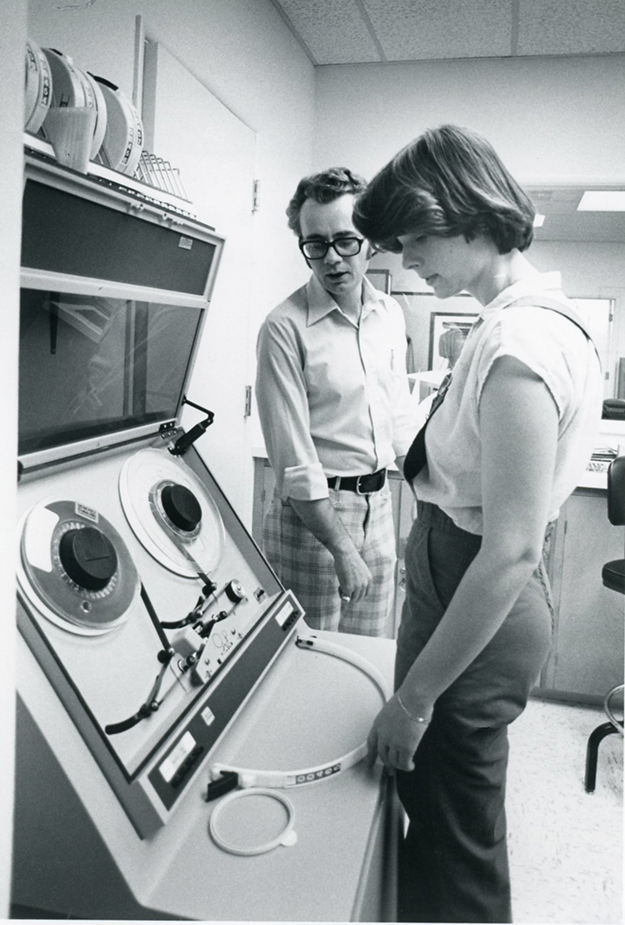
On a recent afternoon, Prof. Ken Miller, director of the Rose Institute of State and Local Government, sat in a conference room on the fourth floor of the glass-walled Kravis Center and listened, watched, and learned. Thirteen students – the Institute’s “new hires” – were presenting on public policy topics ranging from state water management systems to one California county’s response to the opioid epidemic, to the proliferation of ghost guns, and how the ban on gas-powered vehicles might affect lower-income Californians. Charts, graphs, and data supported their arguments and lively questioning followed each presentation.
“I felt proud,” said Miller, who took the helm at the Rose Institute in 2021, its fourth director. “Each fall, we do an intensive ‘boot camp,’ on research methods, writing, quantitative skills, and presentation, and we teach the new hires to collaborate with student mentors and faculty. All of that was on display.”
Celebrating its 50th anniversary this year, Miller is also proud that the Rose Institute has stayed true to the mission it established at its founding in 1973: to create an institute with a laser-like focus on state and local government with an emphasis on California.
Fifty years ago, the Institute’s founders concluded that other colleges and universities were favoring the study of what happens in Washington, D.C. over the state and local level, so there was an opportunity. Plus, Miller points out, “California is such a large and important state that creates policies that have ripple effects beyond its borders to the rest of the country. Studying California has broader implications.”
Also core to that mission, is the pursuit of relevant, actionable research opportunities for faculty and students that promote public understanding of important policy issues among citizens, journalists, and policymakers. This past fall alone, Rose released multiple research papers, polls, and the ambitious “Video Voter Guide” to California’s ballot initiatives. Rose Institute faculty are well-regarded and consulted by California policymakers, both at the local level and in Sacramento. Faculty are also frequently and widely quoted by the media.
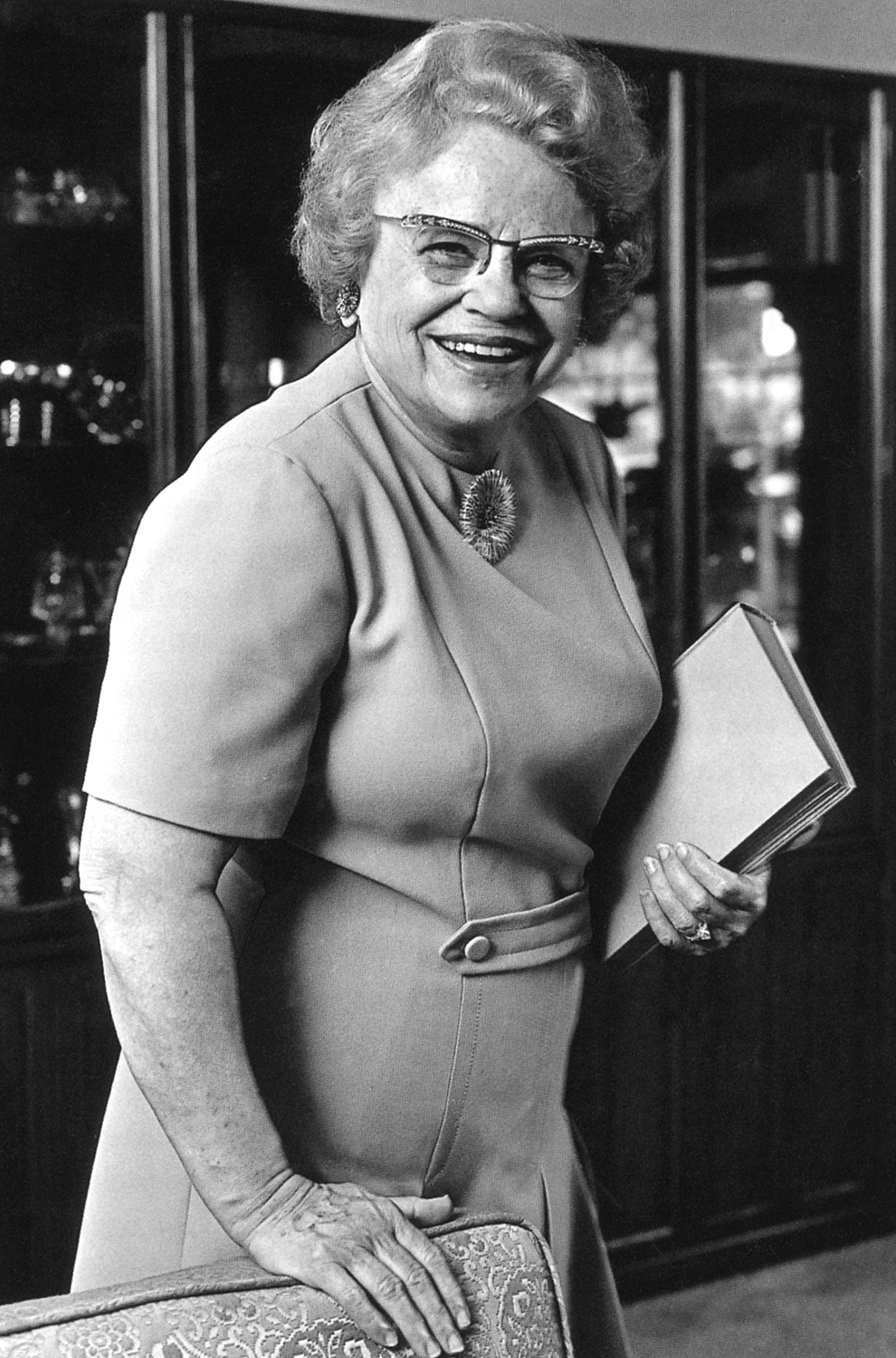
Founded in 1973 with support from businesswoman, lawyer, feminist, and activist Edessa Rose, the Rose Institute was CMC’s second research institute (The Henry Salvatori Center for the Study of Individual Freedom in the Modern World is four years older) as the College’s early leadership worked to create a structure for research at an undergraduate liberal arts college. There are now 11 institutes and centers at CMC.
Benefactor Marian Miner Cook added more financial support for Rose in later years, and the Institute has continued to thrive.
Both women would likely have been pleased by the enthusiasm of Jada Cook ’26, who came to CMC specifically so she could be a “Rosie,” as the Institute’s students are affectionately known.
The Porter Ranch, Calif. native wrote one of her CMC application essays on the Rose Institute because she was so excited about the prospect of doing mentored, public policy research as an undergraduate. A self-professed policy wonk and political junkie, she feels at home at Rose, and supported both by faculty and fellow students. For her new hire project, Cook delved into community-based vaccination outreach strategies in the Inland Empire. Grateful for the guidance she got from student mentors who helped her narrow and focus her topic, Cook was also encouraged by the response she got when presenting.
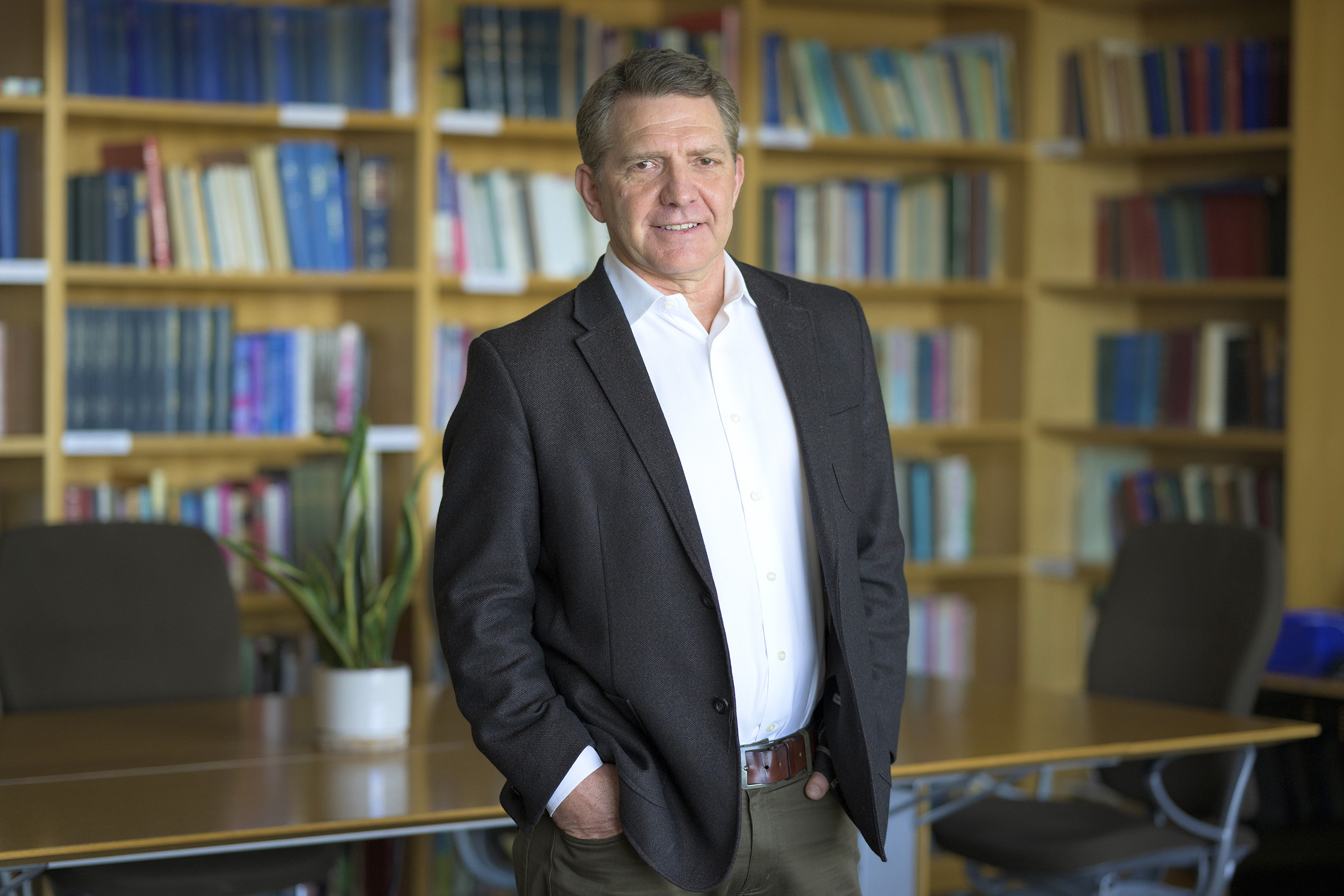
“The way questions were asked; you know that no one is trying to tear you down or make your project look weak. Instead, they’re curious, genuinely curious about your work,” Cook explained.
Getting accepted to the Rose Institute is competitive, and once in, it is a significant commitment. Students are paid, get no class credit for their work, and devote many hours each week to Rose duties. As they rise, some are named managers and given increasing responsibilities both in output and mentorship. Miller said the model is unique, and extremely valuable as students progress toward careers.
“It’s a rare opportunity for students to have an actual management position involved in hiring, development, assignment onto teams, evaluation—all the things one might do in a nonprofit or a small business,” he offered.
Former student manager, Cameron Stevens ’23, who double majored in Philosophy, Politics, and Economics (PPE) and economics concured.
“It felt more like the real world,” he observed. “You get a lot of professional experience and that was really valuable for me.”
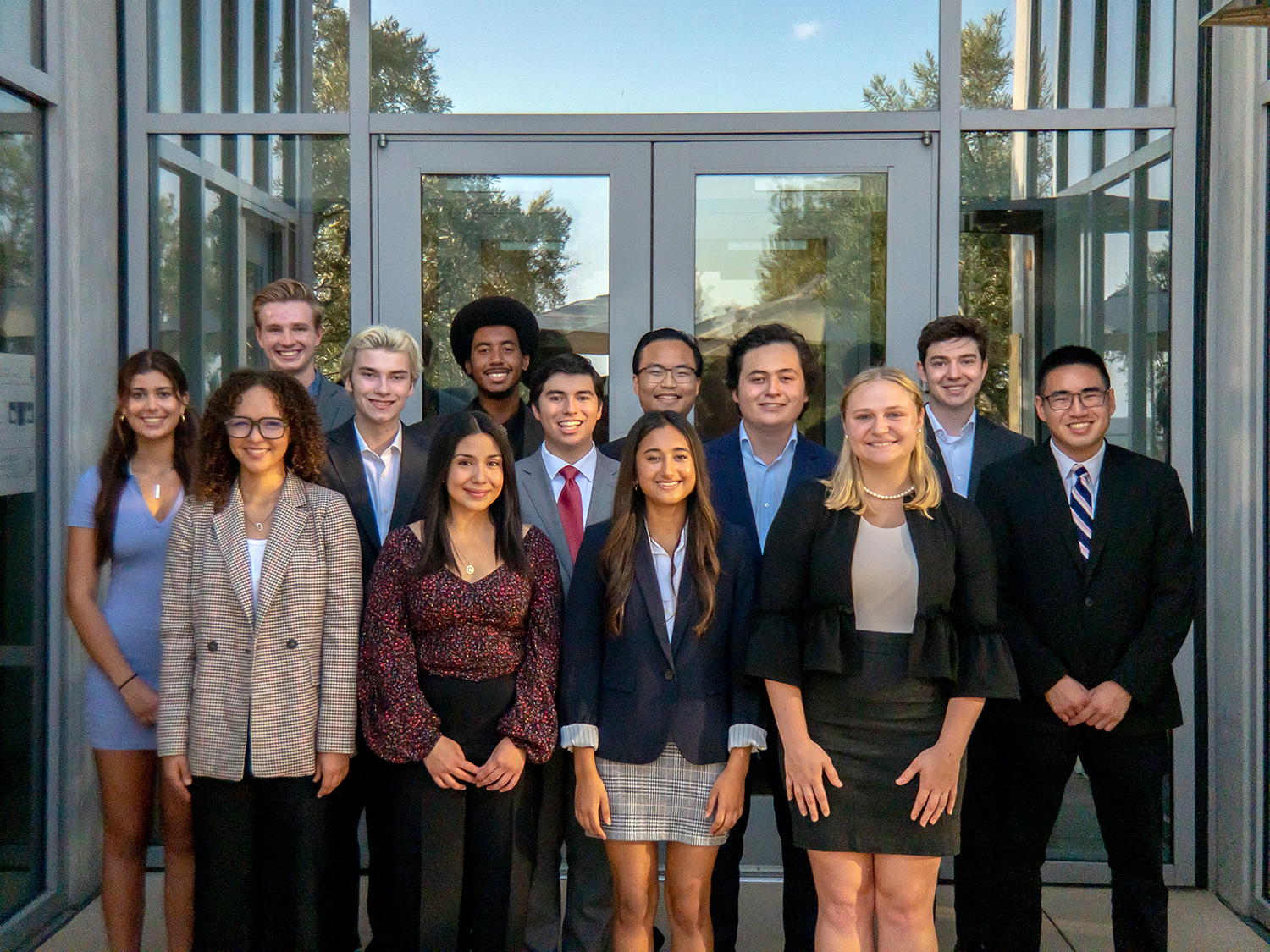
As proud as Miller is of the students who roam the halls and help to run the Institute, it’s the larger Rose community that’s an almost incalculable asset, he said. Four hundred Rose alumni are out in the world, many having built their careers in politics, public policy, or adjacent arenas. Rose’s board roster reads like a Who’s Who of California leadership, offering depth and practical experience to the academic experience.
Many Rose alumni are delighted to return and interact with students and faculty, whether through an Athenaeum talk, a presentation to Rose students, or as a consultant.
A recent example—Nicolas Heidorn ’06, with deep experience in California election administration, returned in fall 2022 to help students with the Video Voter Guide. Many Rose alumni returned for events celebrating the 50th anniversary, including at Alumni Weekend in June and an on-campus gala on October 27.
Jessica (O’Hare) Witt ’00, vice-chair of the Institute’s Board of Governors, said she’s witnessed firsthand how the Rose Institute has evolved under the leadership of successive directors and looks forward to the gathering. “The Rose Institute is truly a special place,” said Witt, now the director of government and community relations for Orange County, “and I have always felt lucky to be a part of it.”
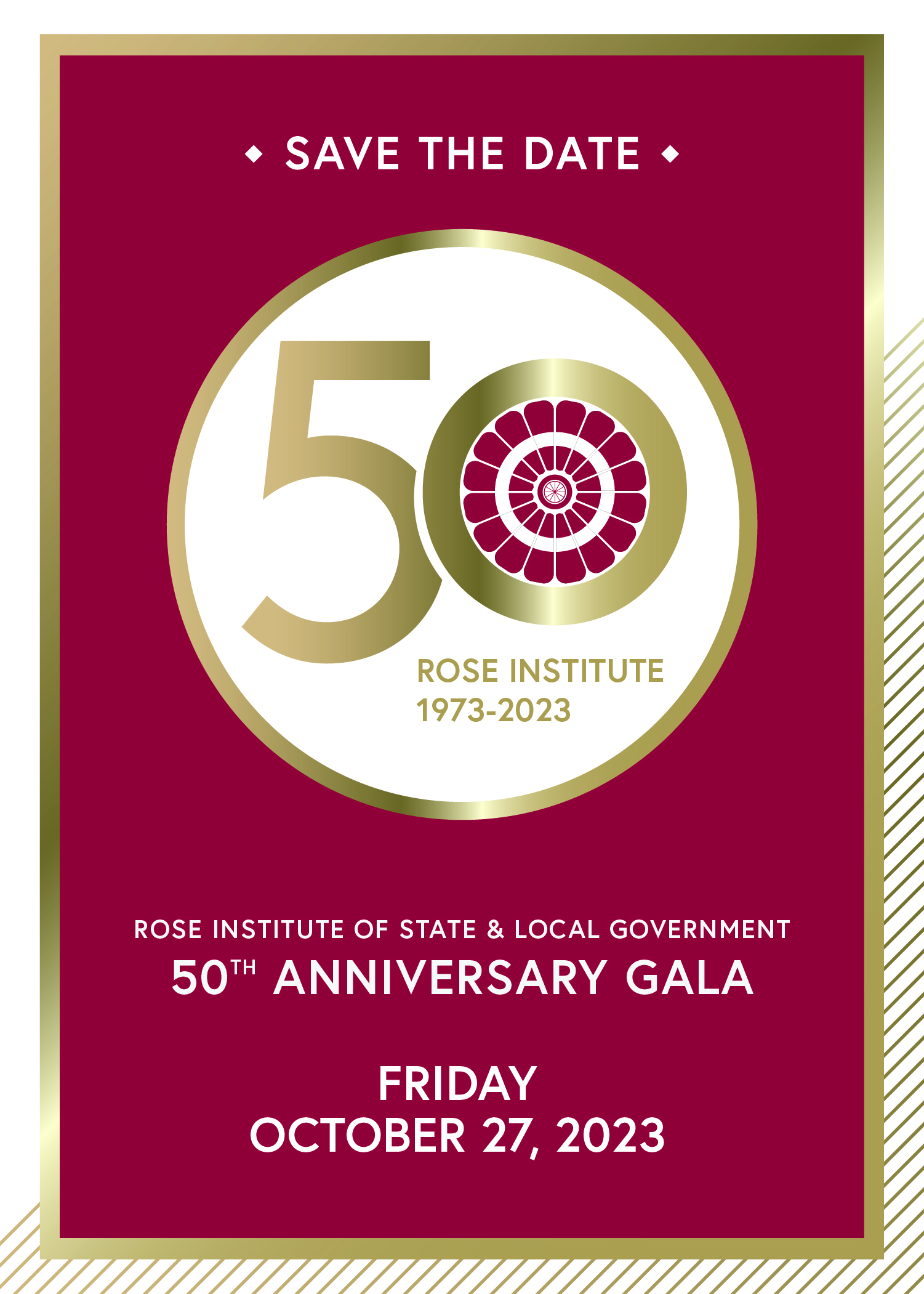
The anniversary will be an opportunity to reflect on the enormous transformation California has undergone in the last half century. Miller points out that in 1973 Ronald Reagan was governor of the state, Republicans and Democrats shared power equally, and California was not nearly as diverse as it is today. After 50 years of change—demographic, economic, social, cultural, and political—the work of the Rose Institute has adapted to the new realities of the state.
One thing that has not changed, said Miller, is a student-centric focus, with the Institute providing an academic and social kinship for its students.
“The number one thing that we do is student development,” he said. “Our primary product is not the databases we create, the reports we put out, or our polls. It’s the students who graduate from here and go on to very productive lives in public policy or policy-adjacent jobs where they benefit greatly from having done this very deep dive into policy research.”

